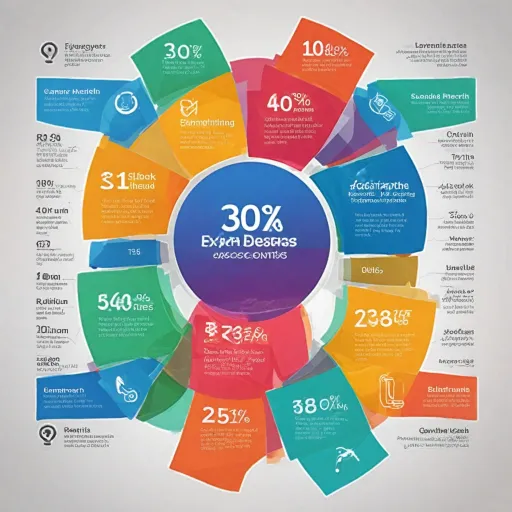
Understanding DEIA Training in AI
Recognizing DEIA Training's Role in AI Development
Diversity, Equity, Inclusion, and Accessibility (DEIA) training in artificial intelligence is pivotal for creating AI systems that are fair, transparent, and beneficial to all. With growing federal initiatives and executive orders supporting diversity, equity, and inclusion efforts, the pressure on companies to address these aspects intensifies, especially in AI development. Modern training programs embrace various factors, including overcoming unconscious bias and promoting inclusion belonging, to cultivate a diverse workforce.
Understanding the scope of DEIA training requires appreciation of how diversity training programs aim to incorporate diverse cultures into AI systems. The goal is to reflect a range of perspectives and cultural contexts, ensuring that AI technologies do not marginalize or alienate underrepresented groups. Efforts in these programs focus on acknowledging the significance of employees’ disabilities and ensuring equal opportunity for everyone, including those with disabilities, to participate in shaping AI tools.
The federal workforce, for instance, continues to adapt DEIA initiatives, emphasizing the inclusion of employees with disabilities among other underrepresented groups. Their involvement is crucial for reflecting the federal agencies' commitment to an inclusive workplace, thus helping other sectors to model after their successful diversity inclusion strategies. Companies are encouraged to amplify DEIA training, not just as an HR practice, but as an integral part of AI development that can drive long-term societal change.
For businesses looking to implement DEIA training effectively, it is essential to explore the integration of DEIA efforts into their existing frameworks. By doing so, they pave the way for innovative, equitable AI systems that can lead to enhanced business outcomes and a more inclusive organizational culture.
For organizations considering the financial impact of these initiatives, exploring what's eligible for lifestyle spending accounts might offer a beneficial perspective.
The Importance of Diversity in AI
Promoting Diversity in AI: A Necessity, Not an Option
Diversity in artificial intelligence (AI) is crucial not only for moral and ethical reasons but also for practical business outcomes. With the rise of AI technologies being adopted in workplaces, there's an increasing need for AI systems to reflect a truly diverse workforce. Companies are implementing DEIA training to ensure that these technologies do not perpetuate existing biases but rather promote equity inclusion in all aspects of employment. A diverse culture within AI involves incorporating perspectives from various underrepresented groups. This includes individuals from different racial and ethnic backgrounds, gender identities, and those with disabilities. By doing so, businesses can develop AI tools that better understand and cater to a broader range of employees and customers. Federal agencies and other organizations are leading the charge by embedding DEIA initiatives into their structures, reflecting on recent executive orders that prioritize diversity inclusion efforts. To achieve this, businesses are taking deliberate steps. Implementing comprehensive training programs that educate teams on unconscious bias and the benefits of diversity equity are becoming common practices. Additionally, DEIA training programs play a pivotal role in facilitating the formation of inclusive teams, contributing to a more vibrant and accepting workplace culture. A diverse AI workforce also ensures that innovations in technology are developed with a broader audience in mind. Rather than creating products that cater to a limited demographic, diverse teams bring varied insights that help design AI systems benefitting people of different backgrounds, ensuring that no employee is left behind due to technology's evolving nature. This is particularly important for employees with disabilities who might otherwise be excluded from the technological advancements uprising within modern workplace environments. The journey toward a truly inclusive workplace is ongoing, but the efforts made today in increasing diversity through DEIA training lay a solid foundation. Companies must continue these efforts to embrace diversity in all forms, ensuring equitable opportunities for all individuals. As we progress in these diversity efforts, aligning business strategies with robust DEIA initiatives will ultimately drive forward a more inclusive future for AI in HR and beyond.Equity and Inclusion: Building Fair AI Systems
Fostering Equity through Fair AI Systems
Creating fair AI systems is crucial in developing a work culture rooted in equity and inclusion. As businesses and federal agencies increasingly rely on artificial intelligence, it's imperative these tools operate without unconscious bias or discrimination. Federal employees and companies alike must prioritize DEIA initiatives to build algorithms reflecting the intentions of diversity equity and inclusion (DEI) efforts. AI's equitable nature stems from the efforts to minimize bias, integrate underrepresented groups, and promote accessibility for people with disabilities. This requires intentional programming and robust deia training programs that emphasize fairness in data collection, processing, and decision-making.Equity in Diverse Workplaces
For a diverse workforce to thrive, AI systems must support equity and inclusion in team dynamics and decision-making. Tools built with equity considerations ensure equal opportunities for career progression, hiring practices, and evaluation processes. This commitment fosters not only a sense of belonging among employees but also strengthens business competitiveness by leveraging diverse perspectives. DEI initiatives in AI development aim to ensure an inclusive workplace culture. By engaging in DEIA initiatives, businesses can align their objectives with federal mandates and executive orders, reinforcing their accountability in fostering a diverse and inclusive environment.Linking Equity, Fairness, and AI Innovations
As deia efforts progress, equity in AI remains a focal point. Federal workforce and companies are increasingly assessing methods to enhance AI tools, ensuring inclusivity and accessibility for employees disabilities. The alignment of such goals plays a pivotal role in furthering business success through ethical and fair practices. Continuous evaluation and refinement are necessary as higher education programs continue to innovate in AI training programs, ensuring future developers remain vigilant against potential biases. This ongoing effort highlights the importance of integrating fair and equitable AI practices into core organizational strategies, see how to enhance your workforce management with position control in AI. In summary, building fair AI systems is about more than just compliance. It requires a dedication to equity inclusion throughout all layers of an organization, ensuring a supportive, diverse, and successful workplace.Accessibility in AI: Ensuring Everyone Benefits
Broadening AI's Accessibility for Inclusive Growth
Ensuring that Artificial Intelligence is accessible to all in the federal workforce and beyond is a significant undertaking. Accessibility is particularly crucial for underrepresented groups. It is not merely about making AI tools available but ensuring their functionality accommodates everyone, including people with disabilities. In this light, DEIA training programs are instrumental. They are designed to help teams tailor AI systems that cater to the diverse needs of a workplace..
Business leaders and federal agencies alike are called to prioritize inclusion. When AI systems are built with accessibility at the forefront, they empower all employees, including those with disabilities, to further contribute to the culture and diverse workforce of the company. For instance, implementing speech-to-text or text-to-speech functionalities in AI applications can make critical systems more inclusive, promoting equity and inclusion at every organizational level.
Furthermore, the idea extends beyond mere compliance with executive orders or initiatives. This facet of DEIA efforts is part of a broader mission to nurture a workplace culture where every individual's potential is recognized and utilized effectively. DEIA initiatives aim not only to bridge accessibility gaps but to foster an environment where inclusion and belonging take precedence, ultimately driving business growth by harnessing a truly diverse workforce.
Challenges in Implementing DEIA Training
Overcoming Barriers in the Implementation Process
Despite the potential that AI holds for promoting diversity, equity, inclusion, and accessibility (DEIA) training within organizations, several challenges arise in its implementation. These hurdles can limit the impact of DEIA programs, inadvertently hindering efforts to foster a more inclusive workplace.
Firstly, there's the issue of unconscious bias in AI systems. Even with the best of intentions, AI algorithms can reflect and even amplify existing biases in data, leading to uneven outcomes for employees from diverse backgrounds or those with disabilities. This underscores the need for rigorous testing and continuous monitoring of AI systems to ensure they serve all team members equitably.
Additionally, there's a resource challenge. Many organizations, particularly small businesses, might struggle to allocate the necessary resources to implement comprehensive DEIA initiatives. Limited budgets and lack of access to cutting-edge AI technologies can impede the effectiveness of diversity training efforts and programs.
For federal agencies and other large enterprises, navigating bureaucratic hurdles and securing the backing for DEIA initiatives can be daunting. Federal employees, although often part of a more diverse workforce, may still encounter systemic barriers when it comes to implementing sweeping changes to their training protocols.
Moreover, achieving genuine inclusion and belonging involves overcoming cultural differences within companies, which can be particularly complex in organizations with wide geographic or demographic diversity. Creating a culture of equity inclusion isn't just about training programs; it’s about transforming workplace dynamics and ensuring that every voice is heard.
Finally, keeping pace with the rapid evolution of AI technologies poses a continuous challenge. DEIA training programs must not only stay updated with the latest AI advancements but also integrate these developments meaningfully within training modules to benefit all employees, including those from underrepresented groups.













